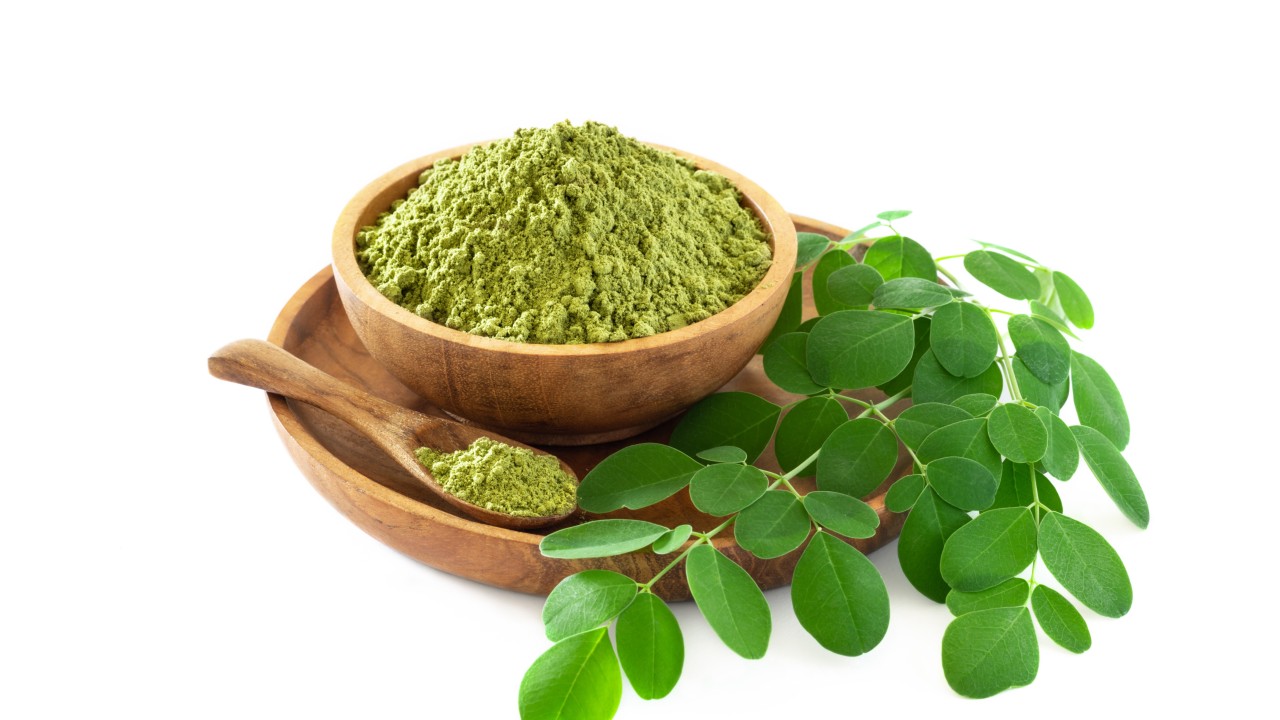The Medicinal Properties of Moringa: A Scientific Exploration

Moringa oleifera, commonly known as the “drumstick tree” or “miracle tree,” has gained significant attention in recent years for its wide range of medicinal and nutritional properties. Native to parts of Africa and Asia, particularly the Indian subcontinent, moringa has been used for centuries in traditional medicine to treat various ailments. Modern scientific research is uncovering the mechanisms behind these benefits, confirming many of the therapeutic properties attributed to this remarkable plant.
In this blog, we will explore the medicinal properties of moringa and review the scientific research that supports its role in health and wellness.
Nutritional Profile of Moringa
Before diving into its medicinal properties, it’s essential to understand the nutritional richness of moringa. Moringa is packed with essential vitamins, minerals, and amino acids. It is a rich source of:
- Vitamin C: Supports the immune system and collagen production.
- Vitamin A: Promotes healthy skin and vision.
- Calcium: Essential for bone health.
- Potassium: Important for heart function and muscle contractions.
- Iron: Crucial for red blood cell formation and oxygen transport.
The leaves, seeds, and pods of the moringa tree are all edible, with the leaves being especially nutrient-dense. Moringa’s impressive nutritional profile has earned it the title of a superfood, with the potential to address malnutrition in various parts of the world.
Anti-Inflammatory and Antioxidant Properties One of the most well-documented medicinal properties of moringa is its ability to reduce inflammation and neutralize free radicals.
Inflammation and Chronic Disease
Chronic inflammation is a major contributor to many diseases, including heart disease, cancer, and autoimmune disorders. Research has shown that moringa contains potent anti-inflammatory compounds, such as isothiocyanates and flavonoids, which can reduce the production of inflammatory markers in the body.
A study published in Inflammopharmacology demonstrated that moringa leaf extract significantly reduced inflammation in animal models, suggesting its potential use in managing inflammatory diseases like arthritis.
Antioxidant Activity
Moringa is also rich in antioxidants, such as quercetin and chlorogenic acid, which help neutralize harmful free radicals that contribute to oxidative stress. Oxidative stress is linked to the development of chronic diseases like diabetes, neurodegenerative disorders, and cardiovascular disease.
A study published in the Asian Pacific Journal of Cancer Prevention found that moringa leaf extract exhibited strong antioxidant activity, which can protect cells from oxidative damage and reduce the risk of developing cancer.
Detoxification Properties of Moringa
One of the lesser-known but powerful benefits of moringa is its ability to support detoxification, particularly in the liver. The liver is the body’s primary detox organ, responsible for processing toxins and removing waste. Moringa’s hepatoprotective properties make it an excellent natural supplement for enhancing detox pathways.
Research on Detoxification
A study published in Food and Chemical Toxicology found that moringa leaf extract significantly improved liver enzyme levels and reduced oxidative stress in rats exposed to toxic chemicals. This suggests that moringa can help protect the liver from damage caused by environmental toxins and chemicals . Moringa has been shown to support the detoxification of heavy metals like arsenic, which are commonly found in contaminated water supplies. Another study, published in Toxicology Reports, demonstrated moringa’s potential to reduce arsenic-induced toxicity and improve overall liver function.
By promoting healthy liver function and reducing the burden of toxins in the body, moringa helps cleanse and rejuvenate, making it a perfect natural remedy for detoxification.
Moringa’s Role in Stress Relief
In today’s stressful world, managing mental and physical stress is crucial for maintaining overall health. Moringa is gaining attention for its adaptogenic properties—herbs or plants that help the body adapt to stress and restore balance.
Scientific Evidence for Stress Relief
A study published in Pharmacognosy Research explored the adaptogenic properties of moringa and its ability to reduce stress-induced anxiety and depression in animal models . The study found that moringa leaf extract helped regulate cortisol levels, the body’s primary stress hormone, and improved the animals’ ability to cope with stress.
Furthermore, the antioxidants in moringa, particularly quercetin and polyphenols, have been shown to reduce oxidative stress, which can lead to better mood regulation and reduced anxiety. Oxidative stress plays a key role in the development of anxiety and depression, and reducing this burden through antioxidant-rich foods like moringa can offer significant mental health benefits.
Another study published in the Journal of Herbal Medicine also confirmed moringa’s role in improving mood and reducing stress levels. Participants who consumed moringa leaf powder reported improved well-being and reduced symptoms of stress and anxiety over an 8-week period.
Moringa and Blood Sugar Regulation
One of the most exciting areas of research on moringa involves its potential to regulate blood sugar levels, making it a promising supplement for people with type 2 diabetes.
Research on Blood Sugar Control
In a study published in the International Journal of Food Science and Technology, researchers found that moringa leaf powder significantly reduced blood glucose levels in diabetic rats, compared to a control group . Another human study published in Diabetes, Obesity, and Metabolism demonstrated that moringa leaf extract helped reduce post-meal blood sugar spikes in individuals with type 2 diabetes.
These findings suggest that moringa may be effective in improving insulin sensitivity and reducing blood sugar levels, making it a natural remedy for diabetes management.
Moringa’s Role in Cardiovascular Health
Moringa also shows promise in promoting cardiovascular health. The bioactive compounds in moringa help lower cholesterol levels and reduce the risk of heart disease.
Cholesterol-Lowering Effects
A study published in the Journal of Ethnopharmacology found that moringa leaf extract reduced cholesterol levels in rats fed a high-fat diet . The cholesterol-lowering effect was comparable to that of the commonly used drug simvastatin, indicating that moringa could be a natural alternative for managing cholesterol.
Additionally, the presence of quercetin in moringa can help lower blood pressure, reducing the strain on the heart and further supporting cardiovascular health.
Antimicrobial and Antifungal Properties
Moringa has also been found to possess antimicrobial and antifungal properties, making it useful in fighting infections caused by bacteria, fungi, and viruses.
Antibacterial and Antifungal Research
A study published in Frontiers in Microbiology found that moringa seed extract exhibited antibacterial activity against a variety of pathogens, including Staphylococcus aureus and Escherichia coli . Moringa extracts also showed antifungal activity against Candida species, which cause fungal infections in humans.
The antibacterial and antifungal properties of moringa are attributed to compounds like pterygospermin, which may make moringa a valuable addition to treatments for infections.
Moringa and Liver Protection
The liver plays a critical role in detoxifying the body, and moringa has been shown to protect and support liver function.
Research on Liver Health
A study published in Food and Chemical Toxicology found that moringa leaf extract significantly improved liver enzyme levels and reduced oxidative stress in rats exposed to toxic chemicals . This suggests that moringa has hepatoprotective effects, making it beneficial for individuals suffering from liver diseases or those exposed to toxins.
Neuroprotective Effects of Moringa
Emerging research also points to moringa’s potential in protecting brain health and cognitive function.
Neuroprotective Research
A study in the Journal of Neuroscience Research found that moringa leaf extract reduced oxidative stress in the brain and protected neurons from damage caused by neurotoxic substances . The high antioxidant content and anti-inflammatory properties of moringa contribute to its neuroprotective effects, suggesting that it may help in preventing or managing neurodegenerative diseases like Alzheimer’s.
Moringa – The best “detox” partner
Moringa’s wide-ranging medicinal properties have garnered the attention of researchers worldwide. From its ability to detoxify the liver and relieve stress to its antioxidant-rich profile and antimicrobial effects, moringa offers a natural solution for various health conditions. As scientific interest continues to grow, future studies will likely provide further insights into its therapeutic potential.
For now, moringa stands as one of the most versatile and beneficial plants in the natural medicine cabinet. Whether used to support detoxification, manage stress, or protect the liver and brain, moringa is proving to be a true miracle of nature.
References:
- Inflammopharmacology: Moringa’s anti-inflammatory properties.
- Asian Pacific Journal of Cancer Prevention: Antioxidant effects of Moringa.
- Food and Chemical Toxicology: Liver detoxification effects of Moringa.
- Toxicology Reports: Moringa’s protective role against heavy metal toxicity.
- Pharmacognosy Research: Moringa’s adaptogenic effects in stress reduction.
- Journal of Herbal Medicine: Stress-relief and mood-enhancing properties of Moringa.
- International Journal of Food Science and Technology: Moringa’s effects on blood sugar control.
- Diabetes, Obesity, and Metabolism: Moringa’s impact on diabetes management.
- Journal of Ethnopharmacology: Moringa’s cholesterol-lowering potential.
- Frontiers in Microbiology: Antimicrobial and antifungal effects of Moringa.



